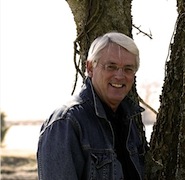My first memory of name calling is personal. I was in the third grade in Anchorage, Alaska and a fifth grader called me “a little spic” or maybe it was “little wop”. I wouldn’t have known what either meant, but I knew by the way he said it, it wasn’t good. I reacted the only way I knew. I jumped him. This wasn’t really very smart for the next thing I knew he was on top of me rubbing my face in the snow telling me I had to say ”UNCLE”. I took me about three tenths of a seconds to figure out that saying “uncle” quickly would prevent me from suffering a lot of pain and further indignation.
Sidebar: I leaned two important lessons. You could both talk your way into trouble as you will see the fifth grader had done, and you can talk your way out of touble, as I had done by simply replying, “uncle”. In addition, I learned that I was not a good torture candidate, because I would tell everything I knew (and if I didn’t know, I’d make something up) to avoid further pain. Waterboarding, hell, I’d spill my guts if you dunked my head in the bathtub.
I got up quickly trying to hide my embarrassment and my tears. As the guy turned to take congratulations from the assembled grade schoolers, I hit him in the back of the head with a rock. This act caused three, more or less, immediate reactions. The fifth grader bellowed in pain, blood appeared, as did the assistant principal. Guess who got punished.
So much for the sticks and stones thing.
The history of name calling is as old as human speech. I dunno why, but we seem to need to diminish others by equating them to something considered ugly, vile, evil, or sometimes funny. This unfortunate technique is used all too frequently in our daily life. “Johnny is a crybaby”. Or “Bubba is dumb as a stump”. Or even, “your mamma’s a …..”. You fill in the blank. But it’s the politicians and their fellow travelers, the political commentators, that have raised name calling to an art form.
The first example I can find is that of Procopious of Caesarea, who was the most important scholar (political commentator) of the 5th century BC. He improvidently called Emperor Justinian of Rome a “demon emperor”. Pretty mild stuff by today’s standards, but in those days one didn’t go around referring thusly to a fellow who had absolute power over absolutely everything . I don’t know what happened to Procopious, but I’ll bet it was worse than getting hit in the head with a rock.
Fast forward more than two thousand years and you find that things, name calling wise, haven’t changed much in the political arena. In the presidential election of 1796 (surely you all remember that one), the Republicans referred to John Adams as a “pro-british monarchist”. Sounds fairly innocuous to me, but back in the day that was tantamount to calling someone today a weak-kneed european style socialist traitor. Oh, you’re right, they actually do say that today. Well, you get what I mean. In response, the Federalists said Jefferson was an “atheistic french puppet warmonger”. Wow! That’s not just compound name calling, it’s a four bagger. (1) Aetheist (that should have been enough by itself). (2) French (that’s still bad today). (3) Puppet (controlled by a foreign power). (4) Warmonger (well, I guess warmonger is not so bad by today’s standards). You can see this is not a game for the faint of heart or dull of tongue.
Fast forward another one hundred fifty years and we see that things get even a little more personal. John L. Lewis, the long time leader of the United Mine Workers Union, who was never known for mincing words but did mince a few people, said in speaking of our fellow Texan, John Nance Garner, who at the time was Roosevelt’s Vice-President, “he’s nothing more than a “labor-baiting, poker-playing, whiskey-drinking, evil, old man”. Here we get into the dicey issue of whether it qualifies as name calling if the epithets are true. It seems to me that in the above example the only word that might be considered to be on the other side of the truth is “evil”. From what I know though, if you took a vote of all who know him, they wouldn’t rule it out. But I’ll grant you, “evil” is a least subjective.
In no particular order here are some of the more common epithets used in today’s political name calling: left-leaning, flip-flopper, socialist, right-winger, neo-con, weak-kneed, community organizer, nazi and it’s dubious cousin, feminazi, radical, pinko (now almost archaic), Hitler like, Stalinist, Trotskyite (rarely used because no one today knows who he is or what he did), secular, humanist, religion hating, fascist (ask anyone you know for their definition of this one), partisan, appeaser, terrorist sympathizer, follow-traveler, etc, etc, and on and on. You’ll note that I’ve left out all the negative names dealing with race, religion or country of origin. Even I will only go so far in the pursuit of knowledge.
Recently a new standard was established by none other than, you guessed it, The Newtster. He of the Phd with a mind quicker than all but his mouth, said in a stump speech in his more or less normal screed about the short comings of President Obama, “he’s nothing more than a European style socialist like Saul Alinsky”. Huh? I got the European style socialist…that’s old hat for the gop’s, but Saul Alinsky?
As it turns out, you don’t have to look far to find other examples of politicos using poor Mr. Alinsky as a negative political label. None other than Rush Limbaugh and Bill O’Reilly have invoked his name as well. This Sunday’s NY Times pointed out that even Sarah Palin had taken to Alinsky baiting. Surely, she didn’t think of it herself, but maybe that’s where The Newtster picked up on it. As you might imagine, I couldn’t resist doing my own research.
Saul David Alinsky (Jan. 30, 1909-Jul. 12, 1972) was a non-practicing orthodox jew from Chicago who is considered by most to be the founder of modern community organizing. Get it. Chicago, Obama, community organizer. His writing legacy includes the still much used Rules for Radicals. It’s kind of a primer on how to help the impoverished and uneducated to achieve political voice. He was regarded by many as “one of the great American leaders of the non-socialist left”, and was compared by one biographer to Thomas Paine. Time Magazine said of Alinsky, “American democracy is being altered by Alinsky’s ideas.” Interestingly, much of his financial funding came from that famous left-leaning, socialist fellow traveler Marshall Field. You know, Marshall Field of the Marshall Field Department Store chain. Another major funder was the Midas Muffler Foundation…presumably another pinko, socialist organization.
Suffice it to say I can understand why Newt and Sarah might not like him, but let me tell you a story that puts Saul in a little different light. I’m not making this up. In a long, frustrating battle to get the attention of the city fathers of Rochester, NY to the housing needs of the poorest in their city, Alinsky encouraged his followers to each eat a full can of baked beans, and proceed to the Rochester Symphony Hall for a performance of the local orchestra and engage in what Alinsky called “a fart-in of major proportions”. The fart-in never actually took place, as the Rochester city council had already taken too much gas on the issue and agreed to terms with Alinsky. That sold me.
Clearly Alinsky, unlike The Newtster, understood the use of whimsy as well as invective in reaching his objective. In an extensive interview he did for a national magazine in 1972, he responded to the reporter’s question about the source of his passion and sense of direction. He responded by quoting Rabbi Hillel who is considered by most to be the most important Rabbinical thinker of all time: “where there are no men, be thou a man”. I only wish those aspiring to political office would heed the advice of Rabbi Hillel.



